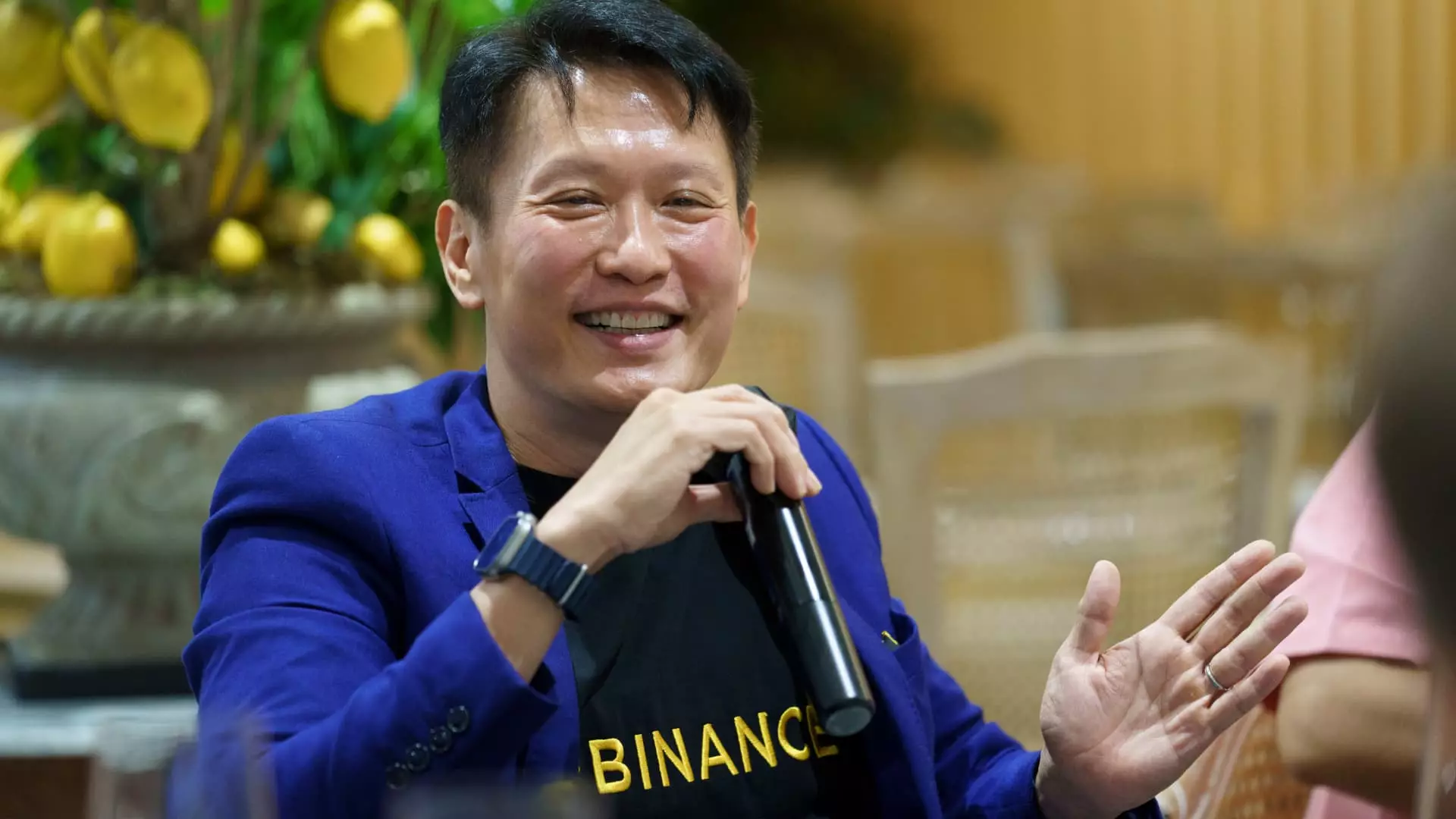The political landscape surrounding cryptocurrency has drastically transformed in the wake of the Trump administration, allowing major players, such as Binance, to navigate through previously turbulent waters. Richard Teng, the newly minted CEO of Binance, has stated that the Trump era has created an environment that is not just different but distinctly favorable for the crypto industry. This dramatic pivot from what many in the industry considered an existential threat under the Biden administration is not merely a political convenience; it reflects a broader shift towards acceptance and integration of cryptocurrency into mainstream finance.
What is particularly intriguing is how Binance, once branded a rogue operator notorious for regulatory defiance, now stands on the cusp of becoming a respected player in the corridors of power in Washington. With calls for a tighter grip on crypto during the previous administration, Binance’s swift adaptation illustrates a remarkable resilience. The exchange has successfully transformed its narrative from a pariah to a potential power broker, a feat that speaks volumes about the interplay between regulation and innovation in the rapidly evolving digital asset ecosystem.
Binance’s Bold Strategy: Facing the Past While Embracing the Future
Despite the apparent political windfall, Binance’s past continues to cast a long shadow. The company’s founder, Changpeng “CZ” Zhao, faced a series of criminal charges, leading to his departure and a hefty penalty of $4.3 billion to settle violations with U.S. regulators. Navigating public sentiment and regulatory scrutiny while bolstering credibility requires deft managing and even more significant reforms.
Under Teng’s leadership, Binance is undertaking a notable shift from founder-led management to a more structured board-governed organization. This evolution is critical for fostering trust with regulators and the public, demonstrating a commitment to compliance that was overlooked in the company’s explosive growth phase. Employing more than 1,300 compliance professionals, a quarter of its workforce, is indicative of a serious intent to make amends for earlier missteps—a risky but necessary investment that could prove crucial as regulatory pressure mounts.
A New Chapter in Strategic Partnerships
The optimistic outlook of Teng and Binance may soon materialize into tangible benefits through potential partnerships, including discussions with the Trump family for a financial stake in the company. This speculative alliance could be a game changer, providing Binance with not only the political clout it sorely needs but could also open doors to additional partnerships with Trump-linked ventures such as World Liberty Financial, a crypto bank that aims to introduce a dollar-pegged stablecoin.
If successful, these partnerships could further legitimize Binance, turning it from a crypto outsider into a mainstream financial player. Yet, the possibility of mingling politics with business raises ethical questions about influence and governance in what remains an unregulated industry. As Binance seeks political favor, one cannot help but wonder how such affiliations may shape its company culture and operational transparency.
Global Expansion Amid Regulatory Challenges
Amid this narrative of hope, it’s essential to keep in mind that Binance is not simply basking in the glow of a favorable U.S. administration. The exchange is also expanding its footprint globally, having jumped from 170 million to 265 million users in a single year. This rapid growth highlights the burgeoning demand for cryptocurrency beyond the U.S. border. Countries like Japan, Australia, and Brazil are making strides toward regulatory frameworks that are more accommodating to crypto operations.
However, note the irony in Binance’s international strategy. While it seeks acceptance and growth, it has faced backlash that includes legal actions abroad, such as the incarceration of top compliance officers in Nigeria—raising questions about the robustness of its compliance framework. The balancing act between global expansion and local law adherence will be crucial to ensuring its ongoing success.
Riding the Waves of Innovation: Technology Meets Finance
Teng is not merely looking to survive the current landscape; he is actively pushing for Binance’s role at the intersection of cryptocurrency and artificial intelligence. The recent partnership with Emirati state-owned investment firm MGX for a whopping $2 billion investment, marking the largest ever in a crypto company, brings AI into focus as a catalyst for future developments. By leveraging AI for customer service, security, and compliance, Binance is setting itself up as a tech-forward entity—one that aims to redefine what is possible within the blockchain space.
However, this rapid technological adoption also brings challenges. Questions about security and compliance are barriers to the broader acceptance of cryptocurrencies. The transition to a more digital-centric approach must prioritize safety, or else the industry risks experiencing backlash similar to what it faced in earlier years.
In this climate of rapid change, Binance’s journey is emblematic of a larger evolutionary trend in cryptocurrency. As the industry navigates aligns with the regulatory paradigm shifting favorably, the outcomes remain uncertain yet hopeful, marking a new era for a technology that promises disruptive potential—if handled responsibly.

